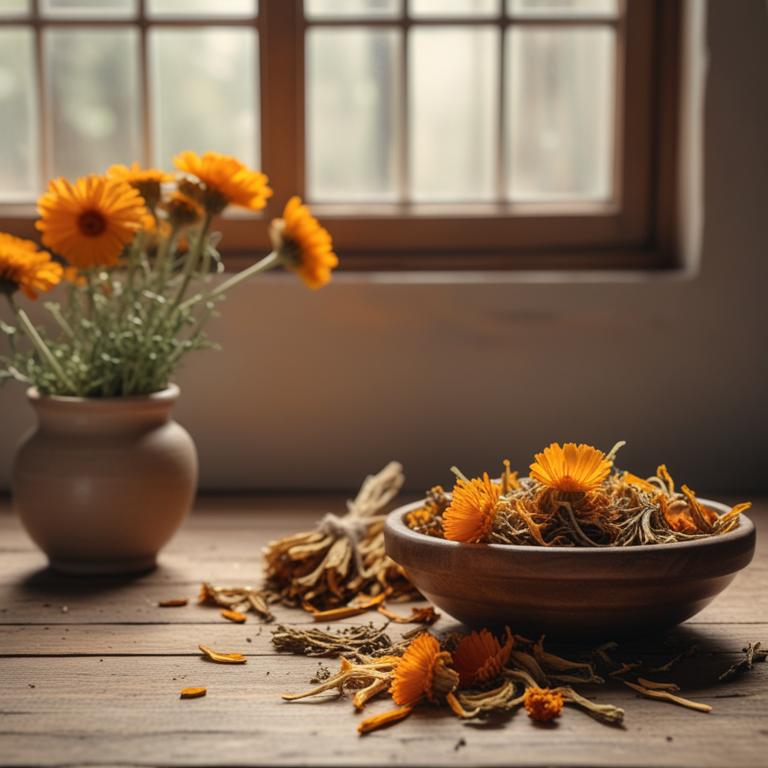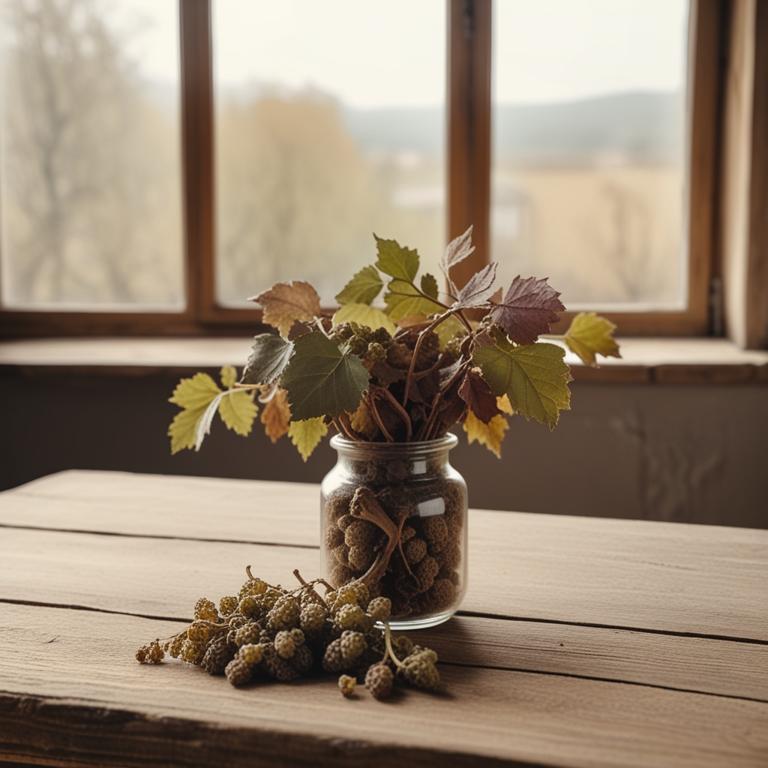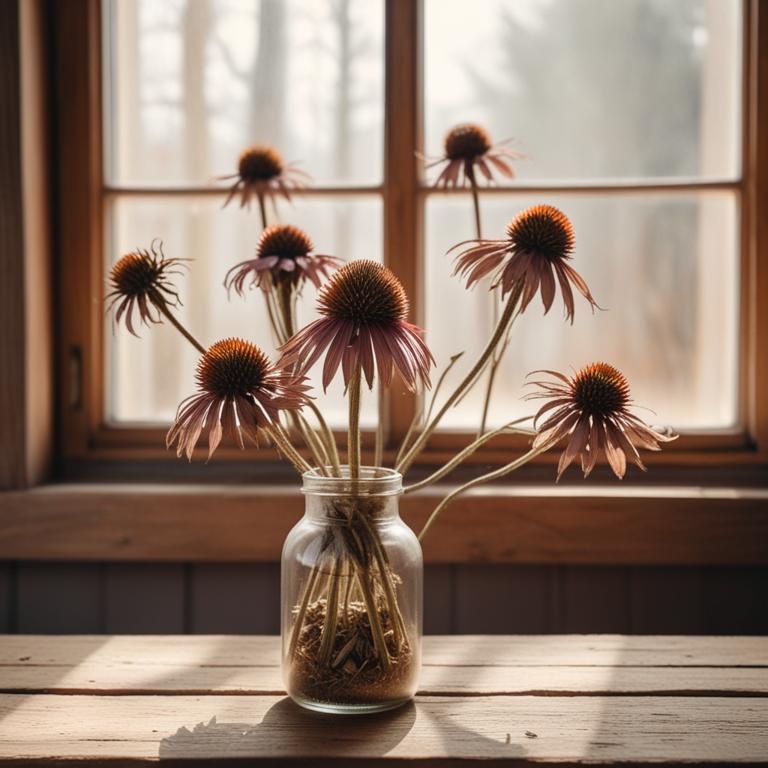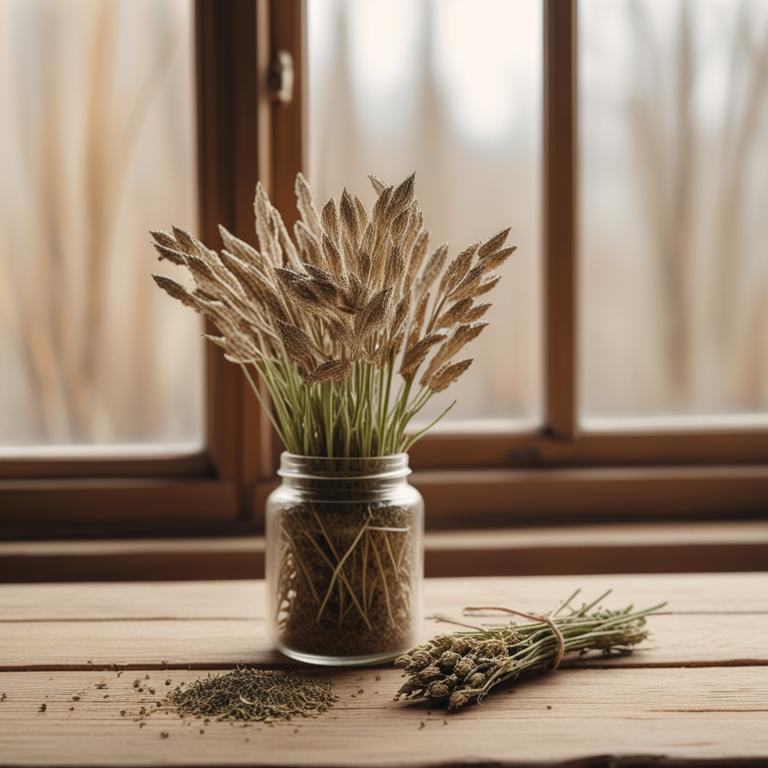Updated: Dec 1, 2024
Dry Scalp and Herbal Remedies: Understanding Causes and Treatment Options
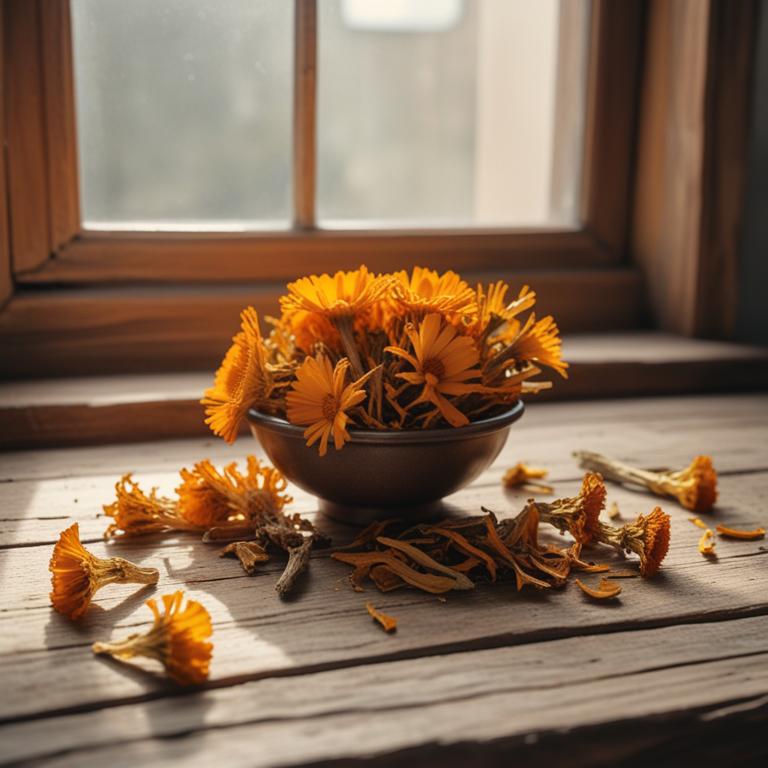
A dry scalp can be a real nuisance, causing itchiness, flakiness, and even embarrassment.
It can affect your daily life, making you feel self-conscious about your appearance. But what causes it?. Dry scalp is often linked to over-washing your hair, using harsh shampoos, and even certain medical conditions like eczema or psoriasis. To combat dry scalp, you can try using herbal remedies that are rich in antioxidants and anti-inflammatory properties. Herbs like neem, aloe vera, and tea tree oil have been used for centuries to soothe and heal the scalp.
Neem, for example, has antifungal and antibacterial properties that can help control flaking and itchiness. Aloe vera, on the other hand, is known for its moisturizing and calming effects, which can help reduce redness and irritation. Herbal teas and infusions can be a great way to use these remedies. You can make a tea by steeping dried neem leaves or aloe vera leaves in hot water. Some people also use tea tree oil in their shampoo or apply it directly to the scalp after shampooing. Another option is to mix aloe vera gel with coconut oil and apply it to your scalp before bed.
By incorporating these herbal remedies into your skincare routine, you may be able to find some relief from dry scalp and enjoy a healthier, happier scalp.
Table of Contents
What are the reasons behind a dry scalp?
The main causes of dry scalp are various skin conditions that can lead to irritation and flakiness on the scalp.
Dandruff is a common condition caused by an overproduction of skin cells, leading to flakes and itchiness. Psoriasis is another condition that causes dry, scaly patches on the scalp due to an abnormal immune response. Eczema is a type of skin inflammation that can cause dryness and itchiness on the scalp.
Seborrheic dermatitis is a condition that causes redness and flakiness on the scalp, particularly on the oily areas. Folliculitis is an infection of the hair follicles, which can cause inflammation and dryness on the scalp. Tinea capitis, also known as ringworm of the scalp, is a fungal infection that can cause dryness, itchiness, and hair loss.
All these conditions can be triggered by factors such as stress, allergies, hormonal changes, and using harsh shampoos or hair products.
What advantages are there to using herbs for the treatment of dry scalp?
Using herbs for a dry scalp can be really helpful.
They can help to soothe and calm the skin on your head, reducing itchiness and discomfort. Herbs can also help to lock in moisture, keeping your scalp hydrated and healthy. This can lead to a reduction in flaking and irritation, making it easier to style your hair and feel confident.
Some herbs have anti-inflammatory properties, which can help to reduce redness and swelling. This can be especially helpful if you have a condition like eczema or psoriasis. Additionally, herbs can help to balance the natural pH of your scalp, creating an environment that's less likely to lead to dryness and irritation.
By using herbs, you can create a healthy and balanced scalp that's better equipped to handle everyday stress and environmental factors.
What are the main medicinal herbs that help alleviate a dry scalp?
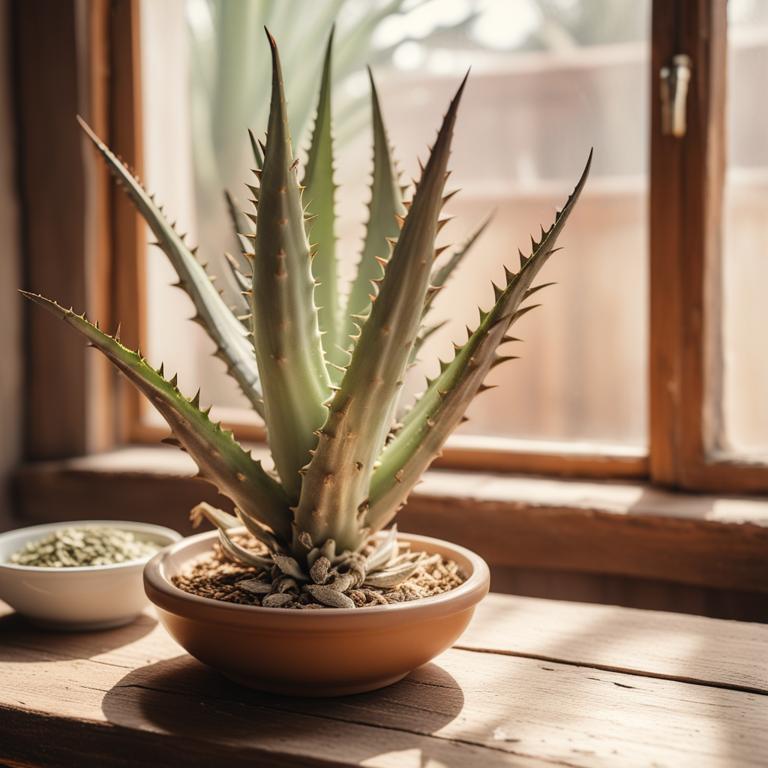
If you're dealing with a dry scalp, using herbs can be a great way to soothe and calm the irritation.
Aloe barbadensis, also known as aloe vera, is a popular choice because of its moisturizing properties. It helps to lock in moisture and reduce inflammation, making it easier to manage dryness. Another herb that can be beneficial is Melaleuca alternifolia, or tea tree oil. It has antifungal and antibacterial properties, which can help to combat infections that can contribute to dry scalp. Rosmarinus officinalis, or rosemary, is also worth considering. It has natural antiseptic properties that can help to prevent infection and reduce inflammation.
Additionally, it can help to stimulate blood flow to the scalp, which can promote healthy hair growth. Urtica dioica, or nettle, is another herb that can be helpful. It's rich in vitamins and minerals, including vitamin C and iron, which are essential for healthy hair growth. It can also help to reduce inflammation and soothe an itchy scalp. Sesamum indicum, or sesame oil, is a great moisturizer that can help to lock in moisture and reduce dryness. It's also rich in antioxidants, which can help to protect the scalp from damage and promote healthy hair growth. By using these herbs, either separately or in combination, you can create a soothing and nourishing environment for your scalp.
They can help to reduce dryness, inflammation, and irritation, making it easier to manage a dry scalp.
What are the common herbal treatments used for dry scalp?
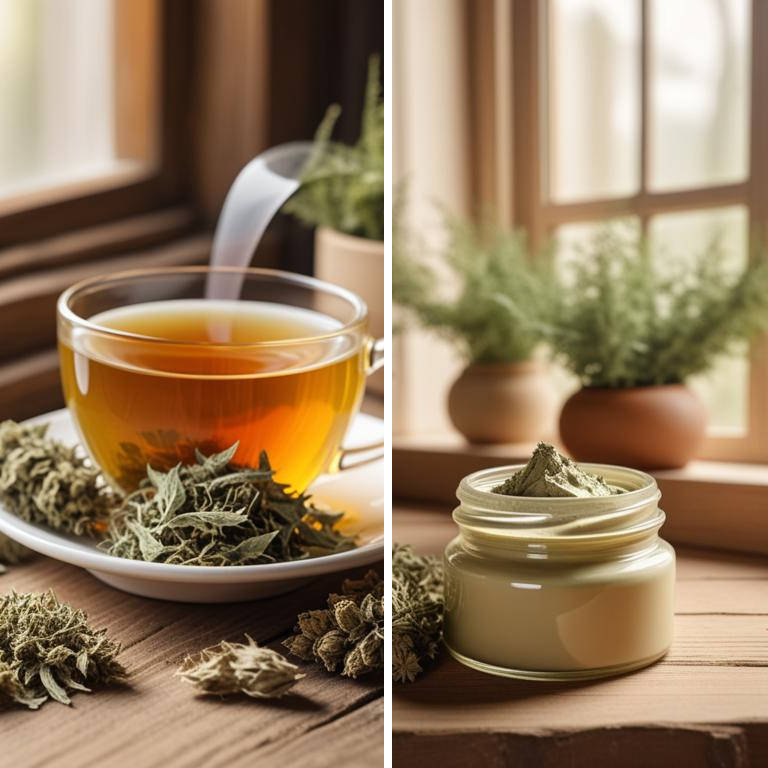
If you have a dry scalp, you might find relief with herbal preparations.
A tea made from plantain or burdock root can be good for soothing itchiness and irritation. This is because these plants have anti-inflammatory properties that help calm the scalp. To make a tea, you steep the herbs in hot water for a few minutes before straining and cooling the liquid. You can then apply it to your scalp with a cotton ball. A decoction is similar to a tea, but you boil the herbs in water instead of steeping them. This method is often used for roots or seeds that are too hard to steep.
A decoction of marshmallow root or licorice root can help lock in moisture and soothe dryness on your scalp. An infusion is a liquid made by steeping herbs in cold water. This method is good for delicate herbs like chamomile or calendula. An infusion of these herbs can help calm irritation and reduce redness on your scalp. If you prefer a thicker consistency, you can make a cream or salve from herbal preparations. A cream made from aloe vera or coconut oil can provide long-lasting moisture to your scalp. A salve made from beeswax and herbs like tea tree or lavender can help soothe itchiness and irritation while also protecting your scalp from dryness.
To make these products, you can simmer the herbs in a carrier oil like olive or coconut oil before straining and whipping the mixture with beeswax.
Additional Resources:
Which herbs might exacerbate a dry scalp issue?
If you have a dry scalp, it's best to be careful when using certain herbs.
Cinnamomum camphora, also known as camphor, can be too harsh for a dry scalp. It has a strong decongestant property that might strip your scalp of its natural oils, making it even drier. This can lead to irritation and itchiness, making your dry scalp feel worse. Lavandula angustifolia, or lavender, might seem soothing, but it can actually dry out your scalp further. Its antiseptic properties can help kill bacteria and fungi on the scalp, but they can also disrupt the natural balance of your scalp's oils, causing dryness and itchiness. Eucalyptus globulus, or eucalyptus, has a cooling effect that can provide temporary relief from itchiness, but its strong decongestant properties can also dry out your scalp. This can make your scalp feel tight and irritated, especially if you're already experiencing dryness.
Cymbopogon citratus, or lemongrass, has a strong decongestant property that can dry out your scalp. Its citrusy scent might be invigorating, but it can also strip your scalp of its natural oils, leading to dryness and itchiness. Zingiber officinale, or ginger, has anti-inflammatory properties that can help soothe itchiness, but its strong decongestant properties can also dry out your scalp. This can make your scalp feel tight and irritated, especially if you're already experiencing dryness. When using these herbs, it's essential to use them in moderation and with caution. Start with small amounts and patch test them on a small area of your scalp before using them extensively. This will help you determine whether they're suitable for your dry scalp.
If you experience any irritation or itchiness, stop using them immediately and consider alternative herbs that are more gentle on your scalp.
FAQ
Are there any specific herbs that can prevent dry scalp?
Some herbs like aloe vera, tea tree oil, and rosemary are known to help with dry scalp.
Aloe vera soothes and moisturizes the scalp, while tea tree oil has antibacterial properties that reduce flaking.
Rosemary oil may help improve blood flow to the scalp, promoting healthy hair growth and reducing dryness.
Is it safe to use herbal remedies for dry scalp during pregnancy?
When you're pregnant, it's best to be careful with new things you put on your skin, like herbal remedies for a dry scalp.
Some herbs can be okay, but others might not be safe for you or your baby. Look for products labeled "safe for pregnancy" or "all-natural.".
Always read the label and ask the company if you're unsure.
Are there any herbs that can reduce the frequency of dry scalp?
Aloe vera and tea tree oil have been found to help reduce the frequency of dry scalp.
Aloe vera's soothing properties calm irritated skin, while tea tree oil's antifungal properties help control fungal growth that can cause dryness and itchiness.
Applying aloe vera or tea tree oil to the scalp may provide relief.
Related Articles
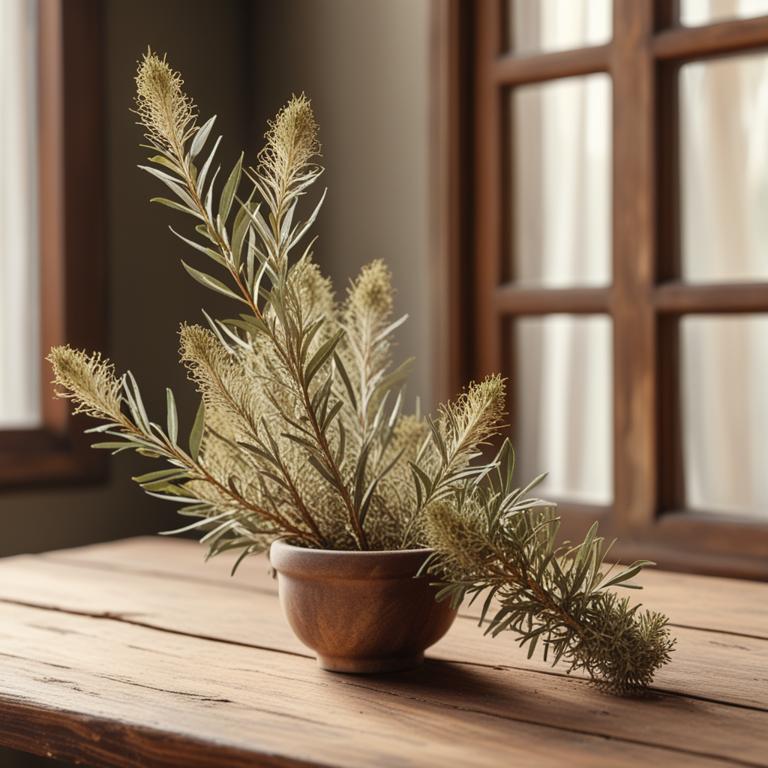
Sunburn Treatment Options: Medicinal Herbs, Herbal Preparations, and Natural Remedies
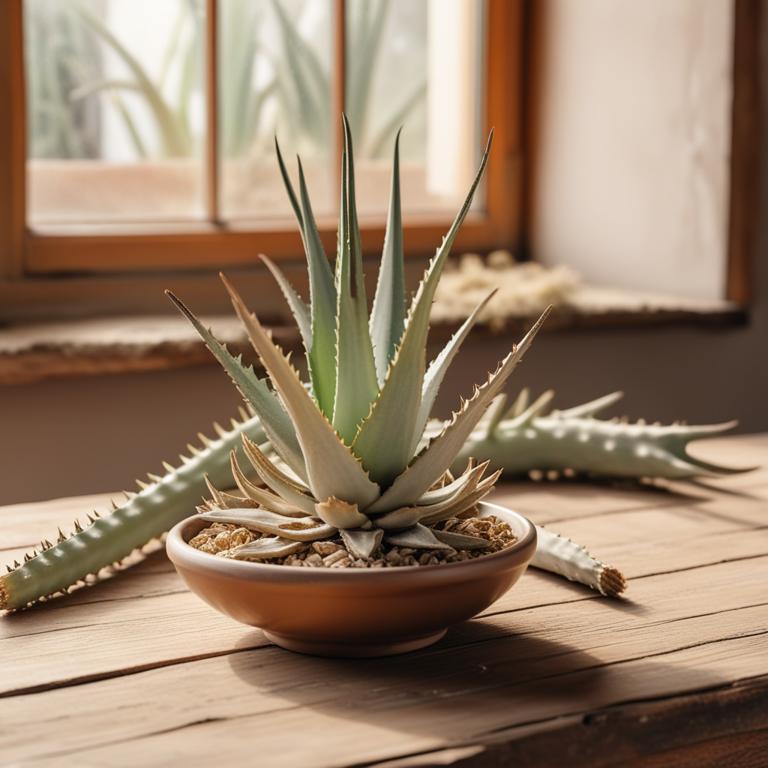
Natural Treatments for Open Wounds: Causes, Medicinal Herbs, and Preparations
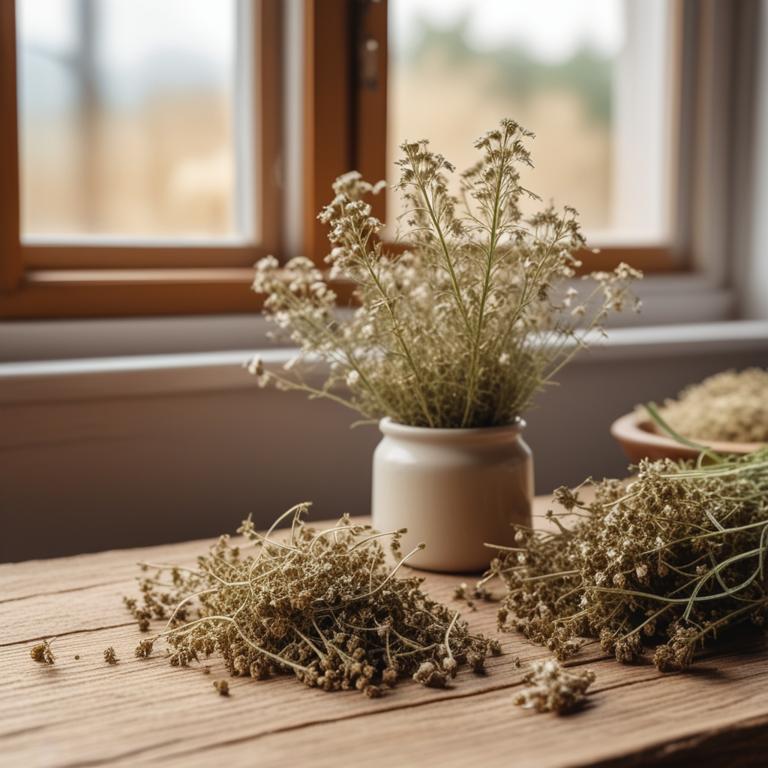
Natural Remedies for Dry Eyes: Causes, Medicinal Herbs, and Herbal Preparations
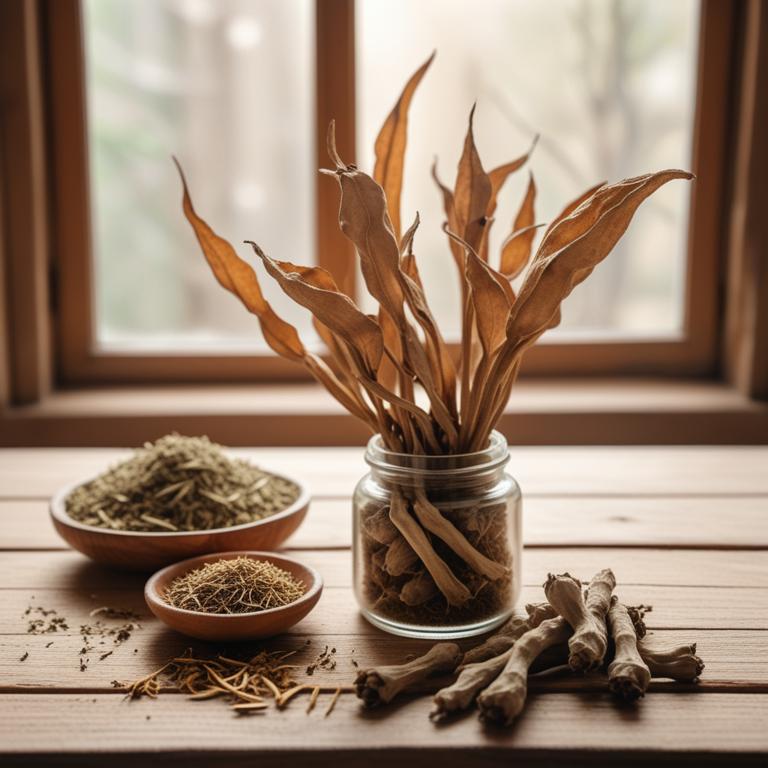
Tooth Decay: Causes, Prevention, and Herbal Preparations
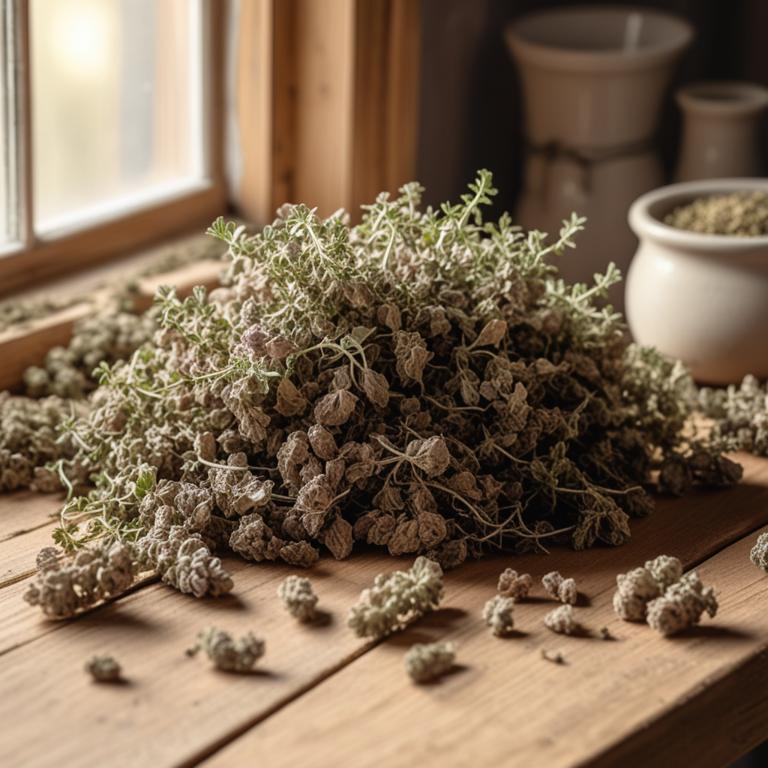
Open Pores: The Causes, Medicinal Herbs, and Herbal Remedies for Healthy Skin
